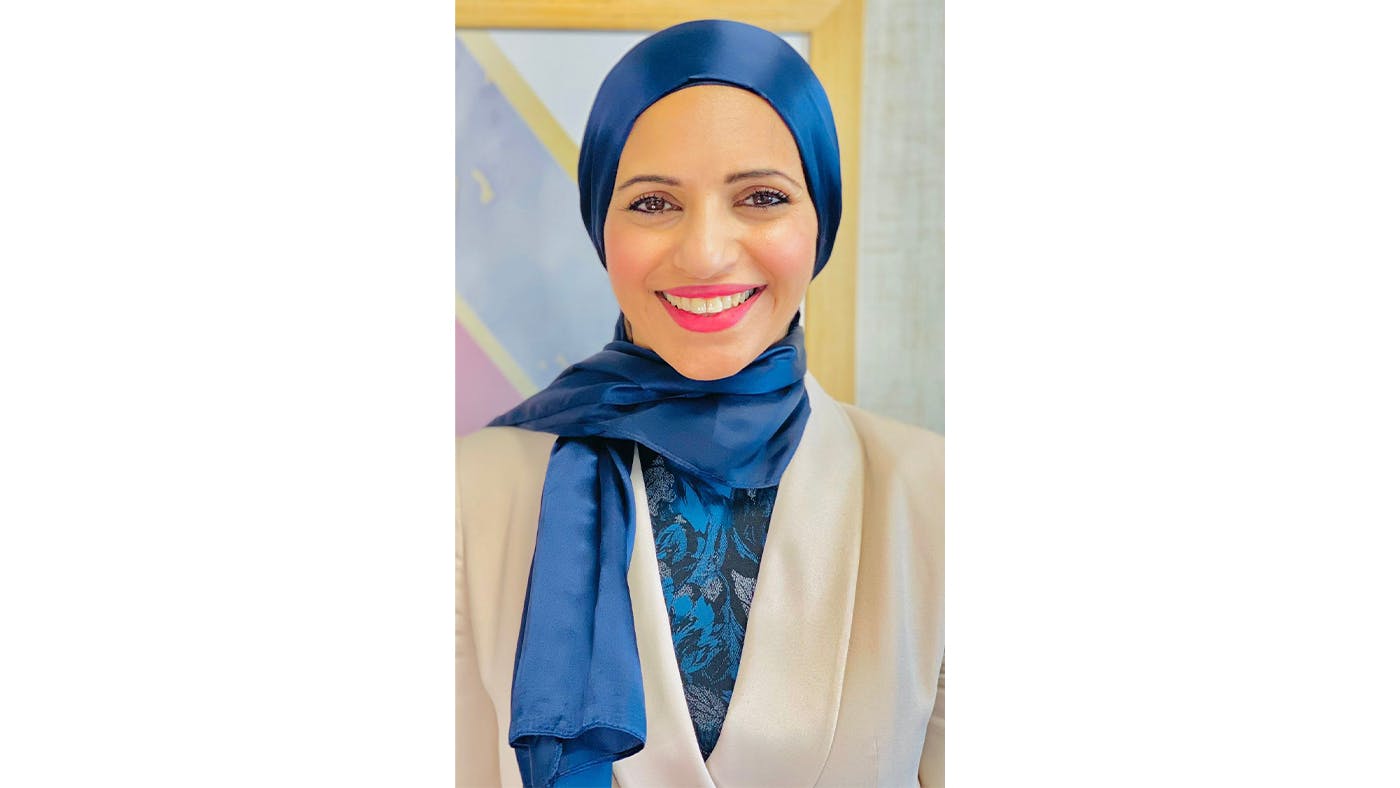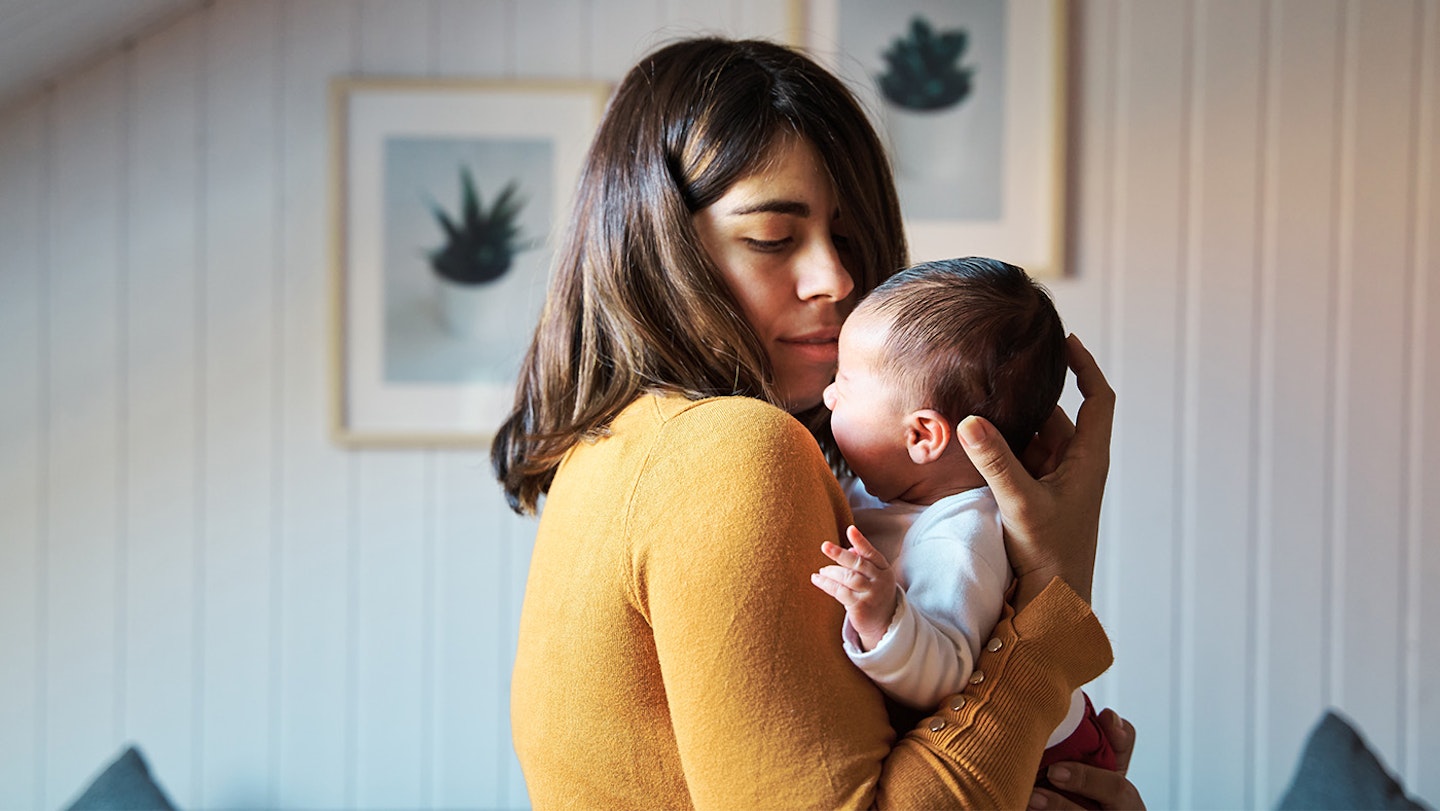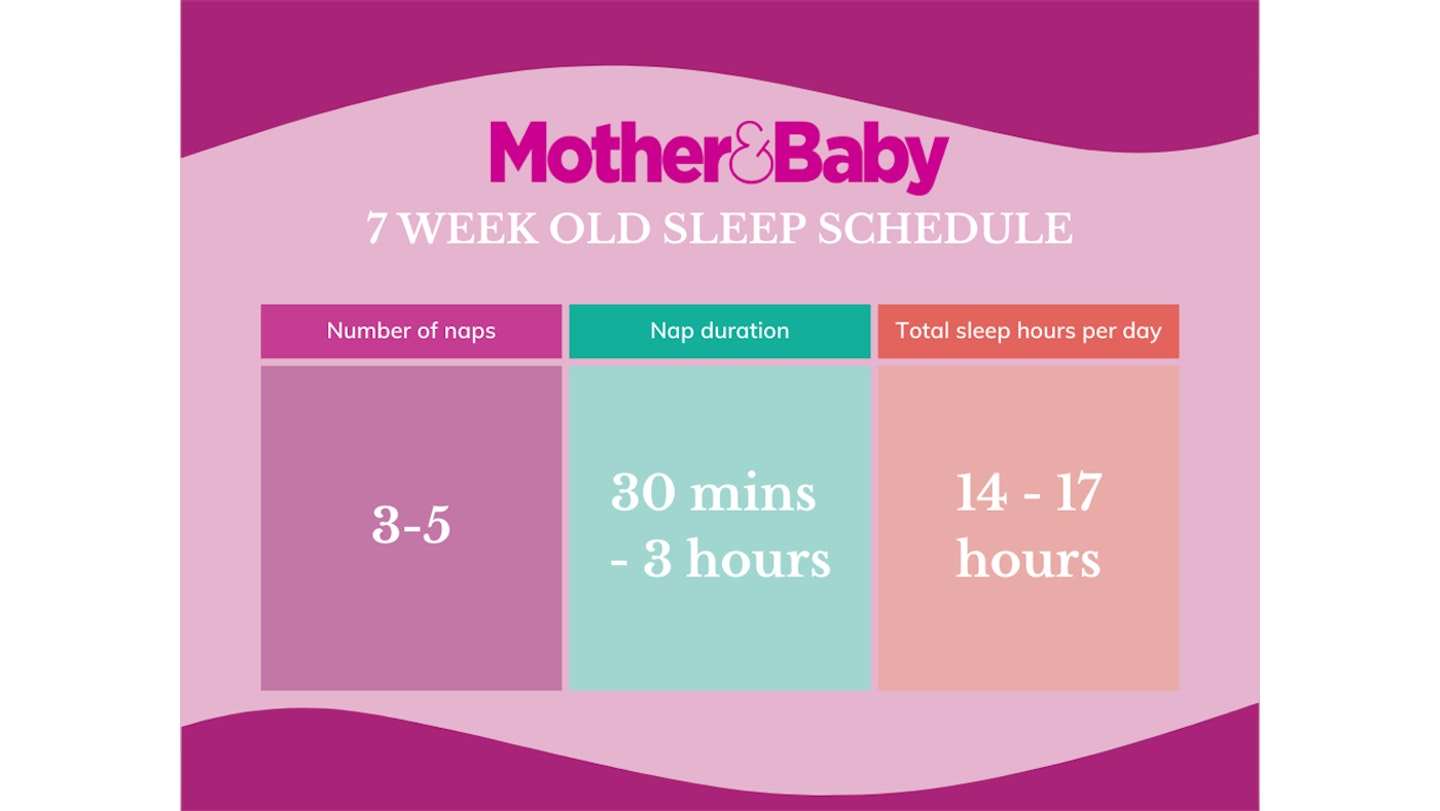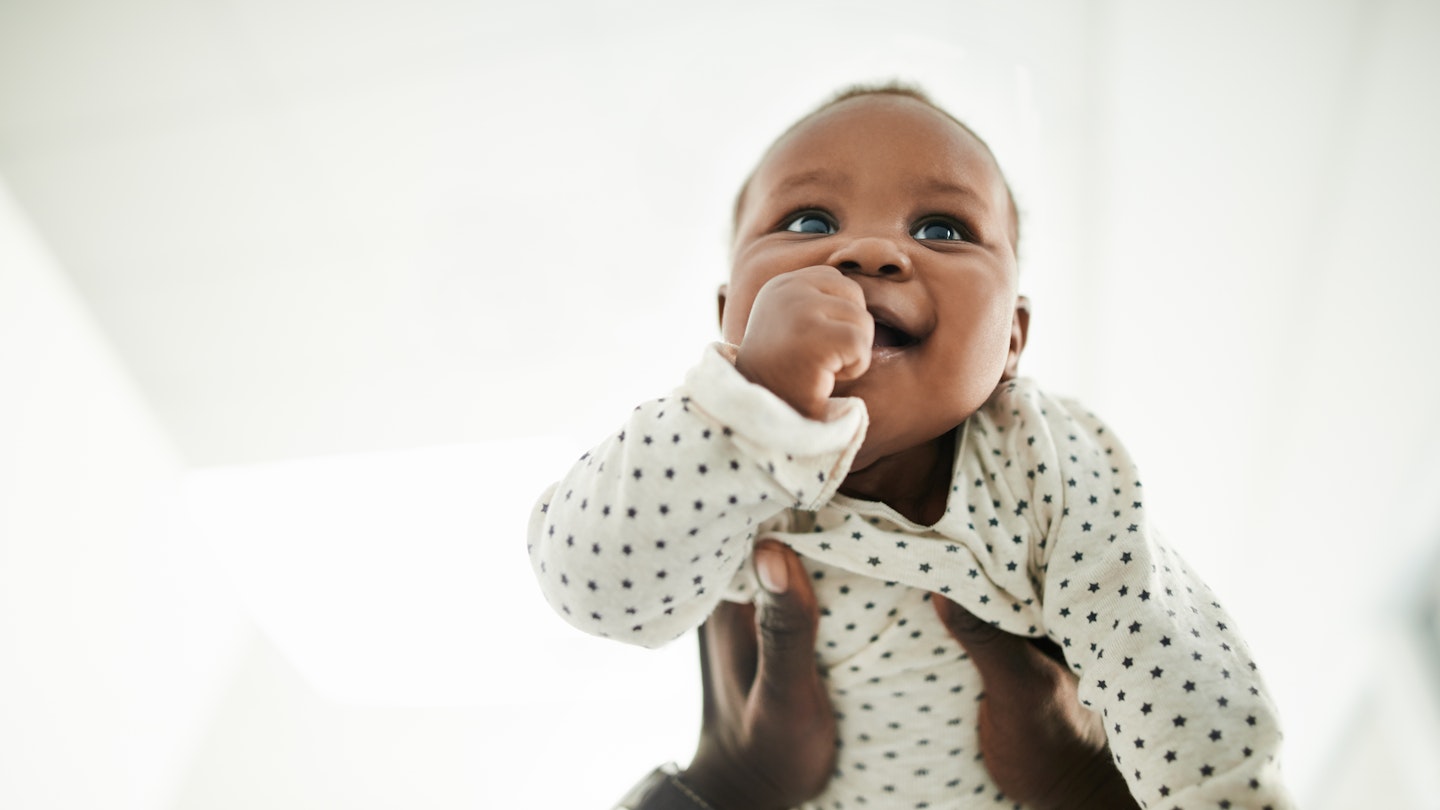
Medically Reviewed by: Dr. Suzanne Wylie
Your 7-week-old baby will now slowly start interacting more with the world around them. Sleep may still be a bit unpredictable for your little one, leaving you a little exhausted too, but this is normal, and will get better. There's some exciting baby milestones you can look forward to this week and if you're lucky, you may see the beginning of what looks like their first baby smile
To get a clear understanding of exactly what to expect this week, we spoke to research psychologist and child development expert Dr Amanda Gummer as well as Dr Suzanne Wylie, GP and medical adviser for IQdoctor to answer all your baby health questions.
Development milestones for 7-week-old baby
Physical development: You may start noticing that their muscles are starting to get stronger. "While they may not have head control, they may be showing improved neck strength and attempting to lift their head during tummy time."
If they haven’t started to lift their head up, when they’re on their tummy, now is the time to start encouraging it. Lay on the floor in front of them so they have something to look up at - this will help strengthen their neck muscles. Dr Wylie explains "Tummy time is crucial for muscle development. Start with short sessions (a few minutes) a few times a day, placing the baby on their front while supervised. Using a rolled towel under their chest or lying them on a parent’s chest can make it more comfortable."
Growth: Following their recent growth spurt between 3-6 weeks, your baby will be bigger than they were, but overall their size varies. "At seven weeks old, a baby’s weight varies, but on average, boys weigh between 4.5–6.5 kg (10–14 lbs), and girls weigh 4.0–6.0 kg (9–13 lbs). However, growth follows an individual pattern, so regular weight checks with a health visitor are recommended," advises Dr Wylie.
Sensory and cognitive development for 7-week-old baby

Vision: With their eyes now able to focus more and their memory improving, you could introduce some baby sensory toys or encourage them to track moving objects by slowly shifting a bright ball from left to right.
As they start to reach out and their hands, you'll notice that they are likely always open. Now is a good time to play with different styles of toys. Dr Wylie recommends black-and-white books, rattles, soft sensory toys, and activity mats.
Smile: If you've been wondering when your baby will start smiling, you won't have to wait much longer. Dr Amanda Gummer says: "At seven weeks old, baby may start to show signs of social engagement such as smiling responsively and making more eye contact."
Language: Your baby's brain will grow about 2 inches during their first three months and in that time they are learning and absorbing their environment. Interact with them as much as possible - even though they can't talk back they are listening.
Dr Amanda says that interacting is important, whether it's through "gentle touch, soothing sounds or facial expressions." She adds: "Responding to their coos and gurgles helps strengthen the parent-child bond and talking to them during everyday activities encourages cognitive development." Dr Wylie agrees, "Interacting with a 7-week-old involves talking, singing, making eye contact, and using different facial expressions. Gentle massage, reading, and playing with high-contrast toys support development."
Sleep patterns and routine for 7-week-old baby
According to Dr Wylie, "Newborns at this stage typically sleep 14–17 hours in a 24-hour period. Sleep is still irregular, but many babies develop a pattern of short daytime naps (30 minutes to 2 hours) and longer night-time stretches with frequent wake-ups for feeds."
With their growth spurt and sleep regression behind them, you should start to notice their daytime naps are becoming longer but less frequent. Where before they might take 4-8 naps a day, now they’re edging towards a maximum of 4. This will hopefully mean more sleep for you at night, as your baby's average of 8-13 hours will be less interrupted than a few weeks ago.
Over the course of the day, their schedule will look a little like wake, feed, play, sleep, repeat. Remember, every child is different so this can vary from baby to baby, so try not to worry if your baby is still sleeping a lot at 7 weeks.

If your baby isn't settling into a good sleep routine yet, make sure they’re getting plenty of milk or formula during the day. Babies who are overtired actually find it harder to get to sleep so look out for signs of tiredness like yawning or rubbing their eyes. If you spot these, this is the time to put them into their crib or cot.
Feeding and nutrition for 7-week-old baby
Feeding your baby will take up most of your time as they have lots of growing to do. Whether you're breastfeeding your baby or formula feeding, you may notice they are feeding more and more. "Breastfed babies may feed 8–12 times per day, as breast milk digests quickly." Says Dr Wylie. "Formula-fed babies typically take 120–150 ml per feed, around 6–8 times per day."
If you're still unsure, your 6-week check up will have revealed your baby's weight, so use it as a good guideline to feed them 150ml-200ml per kilo of that weight. Don't underestimate your little one, they're pretty good at knowing how much they should eat and when to stop so you can learn from them too.
Health and safety tips for 7-week-old baby health
You may have had your baby's six-week check but sometimes this can fall at 7 weeks old and 8 weeks old. Usually a healthcare professional will check over your baby physically and do a few tests to check your baby is a healthy weight. Take this opportunity as chance to ask questions and share any worries you might have.
With all this new growing and learning, your baby may be somewhat uncomfortable and tired during this week and begin to cry more. "Crying is normal and may be due to hunger, tiredness, discomfort, wind, overstimulation, or needing comfort. Colic in babies can also be a factor, peaking around this age." Dr Wylie advises. You may want to try using a baby sling or wrap in the day to keep your baby close, as this can reduce the crying.
Practical parenting tips - looking after yourself
Postnatal depression Within the first year of your baby’s life, you’re at greater risk of postnatal depression. You may feel overwhelmed by guilt and feelings of failure, or that everything could go wrong and it’s all your fault. If these feelings are starting to worry you, take a trip to the doctor and ask for some help. With one in ten women experiencing postnatal depression, it’s important to talk to someone if you're not feeling like yourself.
Get active This may be the last thing on your mind but try to find at a few moments a day to move your body. Even if it's a gentle walk or staying active while baby is napping. This isn’t about losing weight but more about looking after your mental health and wellbeing.
Conclusion
Your 7-week-old baby will be growing rapidly and their brain will also be developing. Their muscles will slowly be getting stronger and their sensory skills more focused. Interact and engage with your baby as much as you can with simple toys.
FAQs 7-week-old baby
What should I be teaching my 7 week old baby?
Respond to their coos and gurgles, even when they sneeze. Talk to then and engage and encourage them to talk back. Provide simple but colourful toys of different textures, shapes, and sizes for your baby to see, hold and explore.
Does a 7 week old baby recognise mummy?
They will recognise your voice from the womb and know your scent but it can take up to 2-3 months for a baby to understand who their mum/caregiver is by sight.
When do babies start laughing?
Babies typically start laughing between 3-4 months of age, though some may laugh earlier or later. As you'd expect smiling comes before laughing and you may get lucky and see what is the start of a smile this week or next.
About the expert
Dr Amanda Gummer is the MD and Founder of FUNdamentally Children and Dr Gummer's Good Play Guide. She is a research psychologist and author, who promotes the value of play and positive parenting in child development.
Dr Suzanne Wylie is a GP and the medical director for Wylie Health and medical adviser IQdoctor. She is passionate about health and well-being and has over 10 years' experience as a doctor working in both the private sector and continuing to currently work within the NHS.
Emily Gilbert is the Features & Reviews Editor for Mother&Baby and has written for the website and previously the magazine for seven years. Emily writes about everything from the top baby products to pregnancy, fertility and maternal mental health. Specialising in product reviews, Emily is the first to know about all the exciting new releases in the parenting industry.
